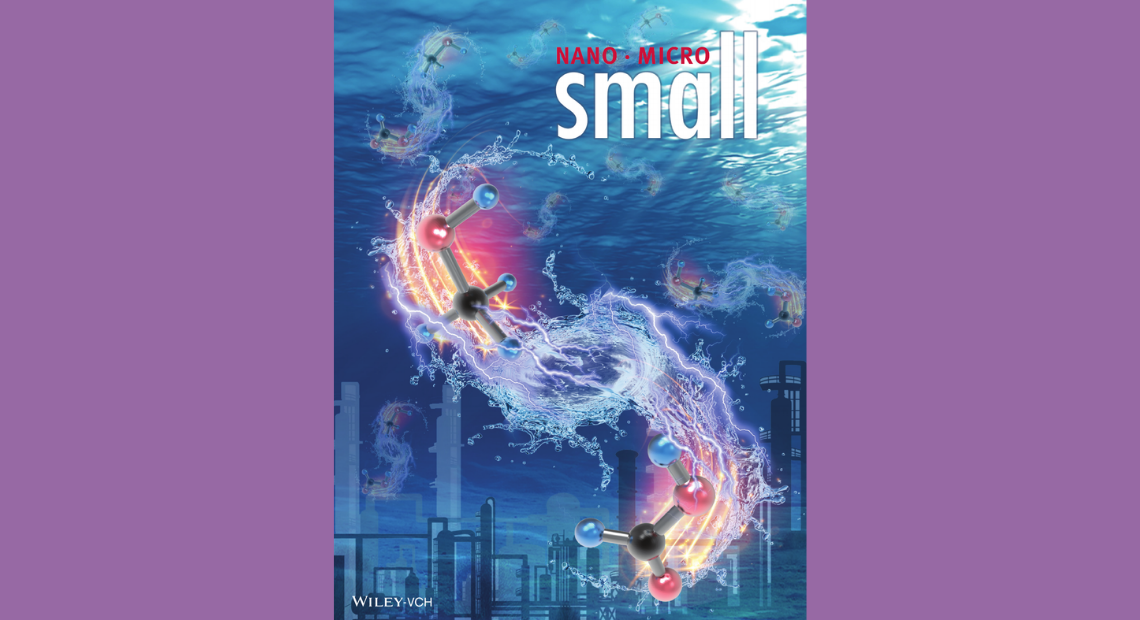A paper featured on the inside back cover of this month’s edition of Small present nickel iron diselenide nanorods, which are produced in solution and used electrocatalytically to convert methanol to formate at a high rate and with a Faradaic conversion efficiency of 99%. This work demonstrates the highly efficient and selective methanol‐to‐formate conversion on Ni‐based catalysts as a promising example of an electrocatalytic route to exploit biomass‐derived chemicals.
This work was led by ICREA Prof. Andreu Cabot, leader of the Functional Nanomaterials group at IREC, and Prof. Chunhua Cui from the University of Electronic Science and Technology of China, together with the co-workers from UPC and ICN2.
The electro‐oxidation of methanol to formate is an interesting example of the potential use of renewable energies to add value to a biosourced chemical commodity. Additionally, methanol electro‐oxidation can replace the sluggish oxygen evolution reaction when coupled to hydrogen evolution or to the electroreduction of other biomass‐derived intermediates. But the cost‐effective realization of these reaction schemes requires the development of efficient and low‐cost electrocatalysts. This work demonstrates the highly efficient and selective methanol‐to‐formate conversion on Ni‐based noble‐metal‐free catalysts, and more importantly it shows a very promising example to exploit the electrocatalytic conversion of biomass‐derived chemicals.
You may download the paper from this link.
The complete details of the article are:
Li, J., Xing, C., Zhang, Y., Zhang, T., Spadaro, M.C., Wu, Q., Yi, Y., He, S., Llorca, J., Arbiol, J. and Cabot, A., “Nickel Iron Diselenide for Highly Efficient and Selective Electrocatalytic Conversion of Methanol to Formate” Small (2021) 2006623.



